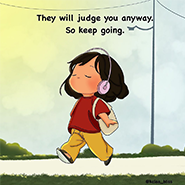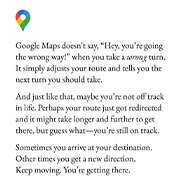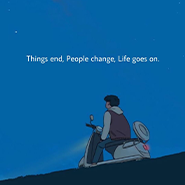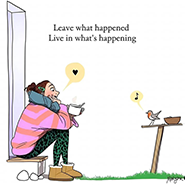I remember my childhood days when we used to keep water in a mud pot in summers or carry a thread sack to have our fish portion when the village head called our house number. Cleansing our feet while entering the house with that thread sack that maa placed on the right spot.
Now, we are in the 21st century, a world moving fast forward, where we kill a Domino's boy over the passing of a few minutes to get our pizza for free, and Zomato claims a 10-minute delivery.
You can imagine how fast we are moving toward a motionless world. Yes, it is, readers.
Why is it motionless?
Because in this world, no one has sympathy, empathy, apathy, or even the basic emotion for others—forget about giving time.
Now, if you visit a market, you’ll see people dressed in stylish half pants, riding their favorite sports bikes without a helmet, and without any carry bag or sack for their purchases. Shopkeepers are expected to provide everything, while we don’t care about the environmental consequences. Why should we carry anything? And if a nearby girl happens to see us, we would be more concerned about our status than the planet.
Plastic is much more poisonous than cyanide.
Plastic vs. Cyanide: What’s the Difference?
Do you know what cyanide is? If someone were to ingest a small amount, it could kill them in less than 10 seconds.
Now, why am I comparing plastic to cyanide?
Plastic is degrading our health, our society, human fertility, soil fertility, and even the entire ecosystem. An ecosystem is where every organism is dependent on one another, either directly or indirectly.
We eat fish to fill our stomachs. But what do fish eat? They eat small fish. But what if, due to pollution, those small fish get sick or vanish? What will we eat then? Think about it.
Before you throw plastic in the soil, ocean, or any water body, just think about the damage you’re causing.
Nano Plastics in Human Blood
A recent study revealed that they found nano-plastic particles in human blood. How did these particles end up in your blood? Yes, it’s from the food system—the chicken, the fish, the cold drinks you sip while watching a movie.
What is the Government Doing?
You might ask, what is the government doing about this?
If you fall sick, it is your family who worries about you, not the government. The government will come and go, and you’ll hear a lot of words, but who cares? The government might treat themselves in the USA or the UK if they get sick due to plastic effects, but for you? You’ll run to a government hospital, hoping for some care.
The Truth About Plastic and Its Impact
Think about what you're doing. Please don’t throw garbage here and there—it harms wild insects and their ecosystems too.
Plastic itself is a serious disaster. It takes 200 years for a plastic polythene bag to break down in the soil, and in the process, it damages the soil. If plastic ends up in the soil, it degrades the land, and its productivity decreases. Even worse, you end up consuming polluted plastic-mixed food. Trees absorb vitamins from the soil, and if you threw plastic there years ago, they’re still absorbing it.
The Reality of Life and Death
No one cares if you die of cancer or fever. People only count the days until the next feast, to see your 11th day celebration.
So act smart—don’t pollute.
Solution: Think Before You Act
Ask yourself: What is the solution? What are you doing to help? And please, don’t burn plastic. Burning plastic helps release harmful gases like COx, NOx, and ozone-depleting gases.
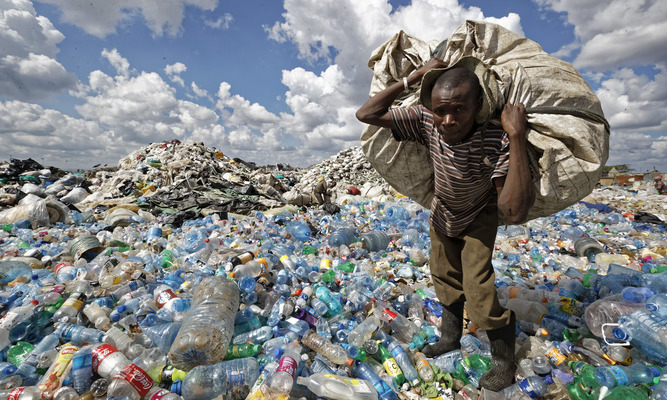
 Sangram Keshari
Sangram Keshari





